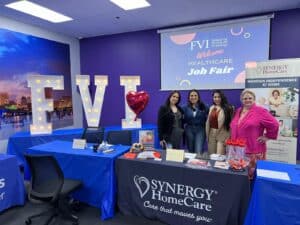
- Your current role is a Professor. Is this the role that you expected to be in when you started in the workforce? How did it change?
Absolutely not! I can honestly state that being in education is my calling, and I am happy and fulfilled in my role today; however, this is not what I envisioned when I entered the workforce. Growing up, I was determined to become a veterinarian. I was interested in all sorts of animals and absolutely horse-crazy, although my parents would not give in to my constant inclusion of a horse on my birthday wish list. They did, however, eventually let me take riding lessons once a week. From there, I gradually became one of the “stable kids.” After school and on weekends, holidays, and summer vacation, I would show up to do barn chores and take care of the horses as needed in return for extra riding time. I became the one to ride the “babies and the crazies,” riding as my trainer taught a lesson. Eventually, I started to teach the very beginner riders. It was here that I first learned how to break a skill down into pieces and to approach explaining it in multiple ways until something clicked with the student.
When I graduated from high school, I went to UCLA to study biology as my steppingstone to veterinary school. While I enjoyed the sciences very much, I was not always a fantastic student. After my first year, I moved out of my family home and into an apartment near school, and I got a job on campus at one of the campus coffee houses. I loved working at the coffee house. People counted on me, and when I worked, I felt appreciated and motivated to do my best. I also loved the multitasking and fast-paced environment in the restaurant. I became a student supervisor very quickly and then a senior supervisor. Meanwhile, my courses were not always getting the attention they deserved. If I enjoyed the class and the professor, I did well, and if I didn’t, I would sometimes only scrape by. At 19 or 20, it isn’t always the easiest thing to prioritize study (a fact I keep reminding myself now, with my two college-aged children). I came to realize that there was no way that I was going to be accepted into the veterinary school with my GPA, not without choosing to first get a Master’s degree and proving myself a bit further.
I also had started to look at the field of veterinary medicine with a more mature eye. I was thinking about most vets’ private practice lifestyle and the intense conflict between the cost of care and owner’s ability to afford care for their animals. I started to consider alternatives. I even explored emergency medicine, became an EMT, and volunteered with the Pasadena Fire Department for about a year. There I rode with the ambulance as a third person along with the two paramedics. That experience taught me that I did not want to have people’s literal lives in my hands, the people who do are absolute heroes, but I would not join their ranks.
As graduation approached, I realized that my best option was to stay in food service management. I had continued to develop as a student supervisor. I had been given opportunities to work on budgets, conduct interviews, and lots of time to supervise floor operations. I was hired as a full-time assistant manager at one of the larger UCLA restaurants and spent about four more years on campus, being promoted to through a couple of positions. I absolutely loved it all. I was on the beautiful campus I’d come to think of as home, I had friends, and I enjoyed the work. However, by the time I had become a manager of my small sandwich corner on campus, it was clear that I was at the end of my career advancement. Managers of the larger restaurants and the division managers were also quite happy in their jobs, and they were not going anywhere anytime soon.
I started job hunting, and I got hired by a division of Marriott that ran college food services. With them, I worked at a community college for another few years and continued to thrive in the environment. Along this time, however, my serious boyfriend decided to take a job offer with Disney Cruise Lines in Florida. They were building their first ship, and his boss in California was hired by Disney and offered him a position. My boyfriend had the wisdom to propose to me around this time, so we moved to Orlando, Florida.
Unfortunately, Marriott did not have a strong presence in Florida in the college foodservice division, and the only transfer available was a reduction in rank and a return to night shift work. I job hunted and did a year working for a 24-hour restaurant franchise (and learned I didn’t want to ever work again for a 24-hour restaurant). Then I landed a job with PepsiCo in a KFC restaurant. I found the company to be very people-oriented and continued to enjoy my career. Even when I became pregnant, I thought I’d be staying in restaurant management. My bosses did a great job and moved me to a store just a couple miles from my house that was far less busy and had shorter operating hours. We were making it work with our newborn daughter until I missed her first Christmas because of the restaurant. The plan was to close the KFC at 8 pm on Christmas Eve, and then I would meet up with my family at our daughter’s godmother’s house, where we would have Christmas Eve dinner. The problem was that at 7 pm, it seemed that every person from miles around decided they wanted chicken for dinner. We simply could not close the doors; every time we tried, somebody opened them again. It was well past 11 pm before we got out of there. Eating a lovely reheated plate of Christmas dinner and looking at my sleeping daughter, I started to think more long-term. What did I want to be doing five or ten years from now?
Thinking it through was accelerated when my husband took a job offer from another cruise line, this time in South Florida. Since I had to leave my job anyway, and since I realized that my skills were people-based and that I was most motivated by training and developing people, I decided to go back to school and pursue a new career in teaching. Nova Southeastern University offered a Master’s degree in education designed as all Saturdays, which allowed me to continue working while getting my degree and teaching credential. I explained things to my KFC bosses and offered to work as an hourly supervisor in South Florida if I could work only Monday-Friday and only until early evening. After about a year back in school, I decided that to make connections in the school district, I would be better off working as a substitute teacher, so that was my next step. Substituting has its plusses and minuses, but I certainly learned a tremendous amount in the time I was a substitute.
The last step to a teaching degree is typically an internship as a full-time student teacher for three and a half months. Just as I was entering into my internship, I found out I was pregnant. While this was not much of a problem for the internship (except on fish stick days in the cafeteria – that was difficult), it also meant that I was eight months pregnant when I graduated. Getting a teaching position when I was due in early September was not going to happen. I ended up working for the daycare where my daughter had been attending and enjoyed a year of being a PreK teacher with the added benefit of being able to check in on my kids on my breaks. From there, I interviewed and landed a position as a first-grade teacher at a local charter school.
This school would end up being my home for the next eighteen years. I began as a first-grade teacher and realized that I had found my calling in the classroom. We had one bump in the road about three years in when my husband took a job in Pennsylvania. Since I was unwilling to leave in the middle of the school year, he went up first, and I joined him with the kids in June. Unfortunately, he was laid off in October before I could even complete the process of getting my Pennsylvania teaching license. After the shock of the moment wore off, I told him, “I think I can have a job at my old school pretty quickly,” and I called my principal. It turned out that there was a position open in third grade, and all she wanted to know was how fast I could be there. Within a week, we were back in Florida, and I was teaching again at my old school.
I believed that I would retire from the elementary classroom, the little old lady with a walker and little kids all around. After a few years, a colleague of mine mentioned that she had been working as an adjunct at Barry University, and they needed another adjunct to teach some courses in their Reading Department. I applied and taught my first course for them in the Masters of Reading program. In all honesty, I wasn’t initially all that taken by it. I had some of the same standard classroom challenges, and it was a night class, so it made my week quite tiring since I still had the little people all day every day, but it was extra money. I taught a second class on another topic in the same program and still was not sure. Then I taught that same class again to the students I’d met my first time. This time everything clicked. When one of my students came up and said, “Thank you, you have made me a better teacher,” I realized that I did have another step to take.
The opportunity to impact adults and make that immediate impact in their career path and their profession was important to me. Teaching young children has a thrill of the blank slate – what will they become? Will something I teach to make a difference in their life down the road? And those things are real and important, but the feedback takes time, and most often, you never find out. Teaching adults is different; they are looking to change their lives for the better and to do their jobs at a higher level. They can tell you that there is a difference, and the impact is more immediate.
I enrolled in the Ph.D. program at Florida Atlantic University in 2013. I was still a third-grade classroom teacher, and after my second year, I also started teaching as an adjunct at FAU. Every semester I would have the same panic attack – how am I going to get all of this done? I kept remembering the advice I was given, that the Ph.D. process is a marathon, not a sprint, and to just keep moving forward. For my dissertation, I conducted an action research project with my students and the other five classes in my grade level to see the impact of reading multicultural literature and conducting guided discussions on the development of empathy in the students. After that amazing year in the classroom, I formally retired as an elementary school teacher. There was absolutely no way I would be able to write up my dissertation and graduate simultaneously with being a full-time teacher. Once I did defend my dissertation and graduate, I was on the job hunt again.
This time it was the FVI School of Nursing that offered me a position. Initially, for a math course, but as we talked, I shared my studies and research within the field of multiculturism, and I got the chance to also teach the human diversity course. This has evolved into more courses and a full-time position, and I could not be happier. The opportunity to work with these students who are striving for something as crucial as nursing and who are seeking to better themselves and their families is exactly what I want to be doing. I do not regret a single step of the path that brought me here, as each moment had something to teach me.
- Since you’ve worked in different positions throughout the years, do you remember any personal incident where you were made to feel inferior/superior solely for being a woman?
There is one incident that stands out in my mind when I consider this question. I was about 24 or 25 years old. I had just been hired by Marriott to become the General Manager at a new account for a retail food service establishment in a community college. The contract had not quite been finalized with the college, so I was asked to spend a few weeks working at another nearby college, where they had an extensive food service program already running. It was not precisely a “training” situation. Still, it was a chance to get familiar with some of the bookkeeping and help out since the restaurant was undergoing some remodeling. That always added work. The General Manager there was a young man, around my age or perhaps a couple of years older. While I found him a bit irritating, I did not worry much about his tendency to pontificate and explain things I knew. One day, he asked to speak to me in his office, a strangely formal request. He proceeded to tell me that he’d been watching me work and speaking to the staff, and he felt that I “needed to smile more” and “to be friendlier” with the team. I asked him if there had been any complaints, to which he said no, it was just an observation to help me. At first, I was embarrassed, I don’t like to be criticized, and wanted to be successful, so perhaps I needed to change my demeanor? However, the more I thought about it, the angrier I became.
One needs to realize that I was a 25-year-old female with a 90% male kitchen crew. The last thing I wanted to be was “smiling and friendly” right from the start – I was purposefully going for “efficient and businesslike.” Would he have told a male manager to “smile more”? I went to my District Manager, who was actually my boss. I recounted what had happened and my opinion of being criticized by someone who was not even my boss (the phrase male chauvinist was invoked). My boss coached me to ignore him, and let me know that actually that manager had been passed over for the account that I was about to fill. In the end, I did ignore him (I did let him know that I had thought about his advice and believed he was wrong). Shortly after, I went on to my new account, but I never forgot that incident or the way that it made me feel shaky in my own abilities.
- Do you feel women’s contributions at FVI have played an integral part in our success?
I absolutely believe that women’s contributions at FVI have played a key part in our success on multiple levels ranging from historic to leadership to representation. Historically, the field of modern nursing was founded by Florence Nightengale (1820-1910) and has been a female-dominated profession. Every nurse becomes familiar with Florence Nightengale’s story, an aristocratic woman who defied her family and society’s expectations to serve as a nurse and work with the wounded in the Crimean War. She was also a statistician and social reformer, and her methods of research were cutting edge for her time. The nursing faculty continue that tradition of evidence-based measurement to determine program effectiveness and develop the nursing classes with a continual improvement focus.
In the area of leadership, higher education continues to be male-dominated. Imagine my pleasure when I arrived for the practice to teach a portion of my interview to be introduced to our campus president, Denyse Antunes. It meant a lot to me to see that the company had chosen a woman to lead the campus. After almost two years at FVI, I will say that she has created a fantastic team and leads them with a consistent focus on the school’s values. I have no question that it is through her leadership and her team’s efforts (which includes other great women in management roles) that FVI is growing and succeeding.
Finally, there is the issue of representation. When I look at the faculty and staff at FVI, I see a wonderfully diverse group of people. Representation matters when students walk into the door. When they see a female instructor teaching the male-dominated IT classes or seeing a man teaching in the female-dominated nursing program, it gives each student reason to believe that they too can be successful in their career, even if they are not part of that profession’s current demographic majority. I mention men in this topic because the addition of more men to nursing is as important as more women to IT and technology. It is important that nursing evolve away from being seen as “women’s work” and be more equally sought after as a profession by both men and women. Within FVI, the fact that our workforce is very diverse and that women are noticeably present at all levels of the organization continues to speak well for its leadership and vision.
- What barriers have you faced, as a woman, in becoming successful in your field? How did you overcome them?
The most significant barriers have always been time-related. Finding enough time to accomplish goals while completing responsibilities that are outside those goals is a daily struggle. In my case, I am a mother and a wife, and as such, I have responsibilities that are tied to other people in my home. Each of us decides what our roles will be when we take on those family responsibilities. No two families are the same, so I hesitate to write out how I “overcame” time management challenges. I know that I am incredibly privileged in that I have a supportive spouse, and we have been quite lucky throughout our lives so far in our health and career path. When things have gone wrong, and they have, we have managed to get through them. In very general terms, I look at my days, weeks, months, and years and look for priorities, and I try to not dwell on things that cannot be a priority at that time. I look at my calendar every morning, reviewing not only the day but what is coming in the short term and slightly further out. I attack what is “on fire the most” and try to work strategically. All that falls apart with a sick child, or more commonly nowadays, with a sick cat, but those are also priorities.
To be honest, sometimes I do not know how I got everything done. I found that as each new semester of graduate school would begin, I would have a feeling of panic, of “how will I ever get all this done – working full time as a teacher, going to school, working as an adjunct, taking care of my family – it’s too much, it’s impossible!” Yet, somehow I had just completed a semester and managed it, now there was a new semester to start, and I’d panic again. Just start. Take one step, and then another.
- What do you believe will be the biggest challenge for the generation of women behind you in the higher education field?
The biggest challenge for the generation of women coming up in the higher education field continues to be a voice. They need to have their voices heard and reach positions where their voices and the voices of other marginalized groups can impact decision-making. Within higher education, there is still a glass ceiling and a perception that women will not have the focus and energy to take care of their family and their professional growth at the same time. The ivory tower tends to protect its own, so it reproduces the white male college presidents and provosts and deans over and over. As a result, the initiatives and focus of the institutions of higher education are more male-driven. Luckily the number of terminal degrees that are being earned by women is steadily rising, and in 2019, for the 11th year in a row, women earned the majority of graduate degrees awarded in the U.S (Council of Graduate Schools, Graduate Enrollment and Degrees 2009-2019, 2020). Higher education does not immediately award leadership positions to newly minted graduates. So in time, one can hope to see an increase in representation of women who aspire to leadership in higher education. I genuinely believe that the path to social reform is through representation in all leadership areas – any group that claims to lead or regulate a population needs to reflect that population; therefore, it needs at least half women and an appropriate mix of all identities. As women move into leadership, I hope that they reach back and reach out to others who currently do not have a seat at the table.
- If you could give one piece of advice to your younger self, what would that be?
If I could give my younger self one piece of advice, it would be to worry less about what other people think. Throughout all my decisions and branches in the road, I spent time worrying about what others thought I should do, particularly when I was younger. While in the end, I would come around to what I wanted, there was always a lot of stress and worry on my part. Am I being a good enough girlfriend? Am I being a good enough employee? Am I being a good enough student? And “good enough” was always measured against what I perceived others were doing. As I’ve gotten older, I’ve started to learn that the question of “am I good enough” should be answered inside one’s self. Once I was a young adult, my grandmother used to always take my hand, look into my eyes, and ask, “so, are you satisfied?” For a while, I just thought it was a way of asking “are you happy”, but as I’ve lived more years, I’ve realized that to be able to say “yes, I am satisfied” is a handy and positive way to look at life. It is also impossible to have other people create your sense of being satisfied, you either are, or you are not. If you are not, what needs to change to make you satisfied? I have been able to use that concept to even blunt the influence of our wired and social media intense world. While there are plenty of amazing people doing extraordinary things on social media, it is much easier to avoid the trap of comparing myself to their impressive accomplishments and lives by carefully thinking and asking myself, Am I satisfied? This is certainly easier said than done, and as a people pleaser and empathetic individual, I do still profoundly care what others think. Still, I do believe that in the end, you need to be able to look in the mirror and be satisfied with yourself and about yourself.










